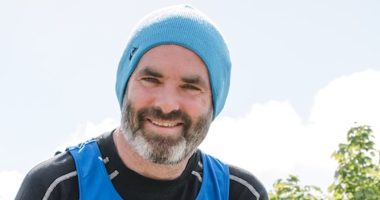Share this @internewscast.com
The end of daylight saving time is right around the corner (Nov. 5, to be exact), and although adjusting to the one-hour change shouldn’t be difficult in theory—especially when it means you can sleep an extra hour—everyone knows the feeling of being totally thrown off this time of year.
That’s because even just a one-hour difference can wreak havoc on your body’s internal clock. All the processes your brain has synced to certain times (like your sleep schedule) get thrown out of rhythm, which results in that groggy, out-of-whack feeling most people experience each fall and spring.
Needless to say, disrupting your body’s internal routines does not usually bode well for your wellness routines (see: feeling more like crawling into bed than heading to a spin class when it’s pitch dark at 6 p.m.). Luckily, there is something you can do to prepare your body so the change doesn’t feel as drastic.
“Daylight savings can negatively affect fitness and wellness routines, from reduced daylight to disrupted sleep patterns, but the key to reducing these effects is to be intentional, proactive, and prepared,” says Nike Well Collective trainer Briana Thompson.
Here are Thompson’s three tips for daylight saving preparation, so you can get through this transition smoothly without sacrificing your schedule.
1. Chase the sun
Fact: Being in the sun boosts your serotonin levels, which can give you more energy and help you feel calm, positive, and focused—all of which are important when you want to stick to a wellness routine. That’s why Thompson says, “Get outdoors and soak up as much natural light as possible.”
Read Related Also: You've been blowing your nose all wrong – here's how doctors say you SHOULD do it
But when the sun starts setting earlier, it can be hard to get the same amount of natural light you’re used to during the spring and summer. Thompson’s recommendations? “Work by a sunny window, take short walks during breaks, or exercise outside when you can,” she says.
2. Keep sleep consistent
This one is easier said than done, but the benefits of keeping a sleep schedule—even with the hour change—are numerous. Simply going to bed and waking up at the same time can help you get better quality rest, which leads to better overall health, and can lower your risk of heart disease.
“A consistent bedtime and calming bedtime routine can help you adjust to the time change more smoothly,” Thompson says. So grab a lavender diffuser, turn your phone off at least thirty minutes before bed, and play some white noise—your body will thank you.
3. Plan exercise ahead
One of the best ways to make sure you’re going to stick to a workout routine is to block the time out of your schedule before you exercise, almost like it’s a meeting. That way, you’ll feel less rushed and more committed when the time to work out rolls around.
What else can you do to ensure your exercise schedule is properly adapted to daylight saving? “Be proactive about adjusting your exercise routine,” Thompson says. “Modify your schedule and plans to fit the changing daylight hours. Being prepared is key to staying on track.”
Now when your clock falls back, you’ll have a game plan to ease the transition for your body and routine—just don’t forget to enjoy the extra hour of sleep.















